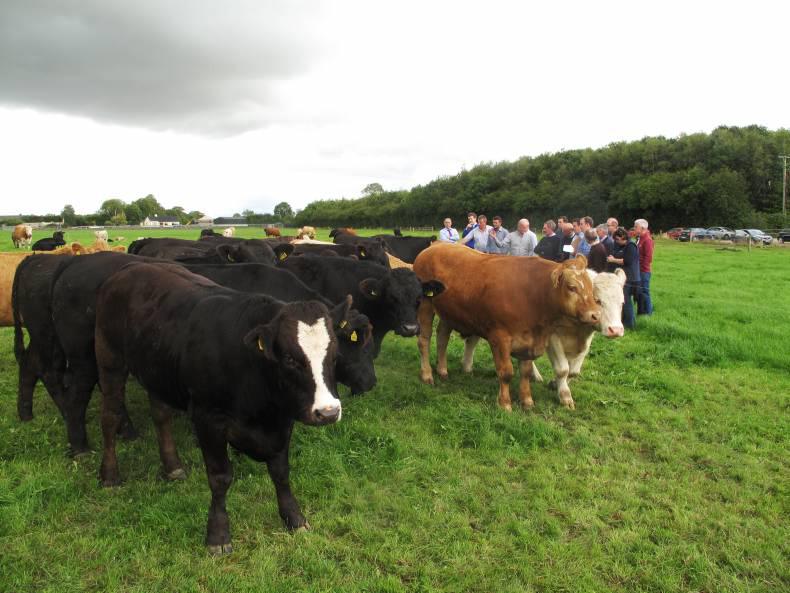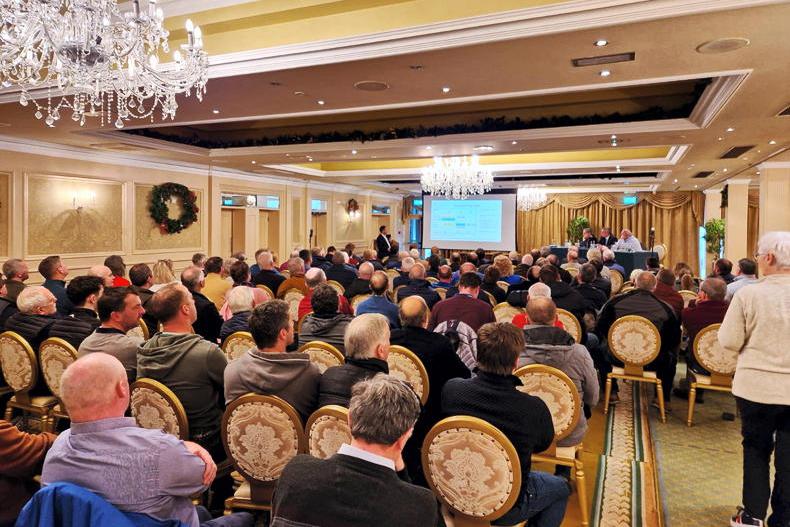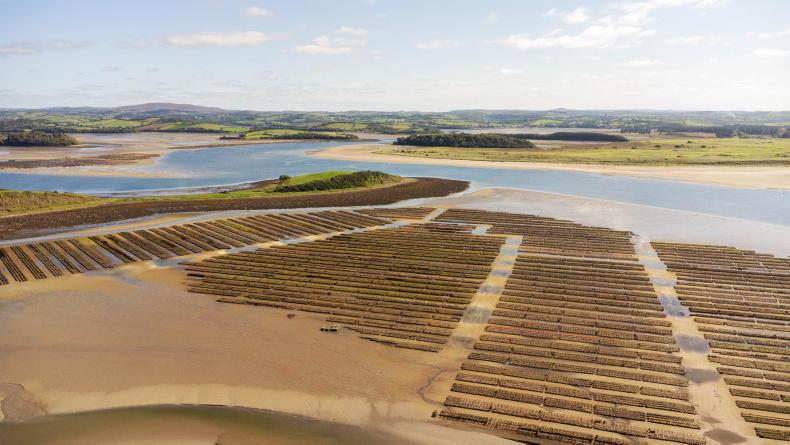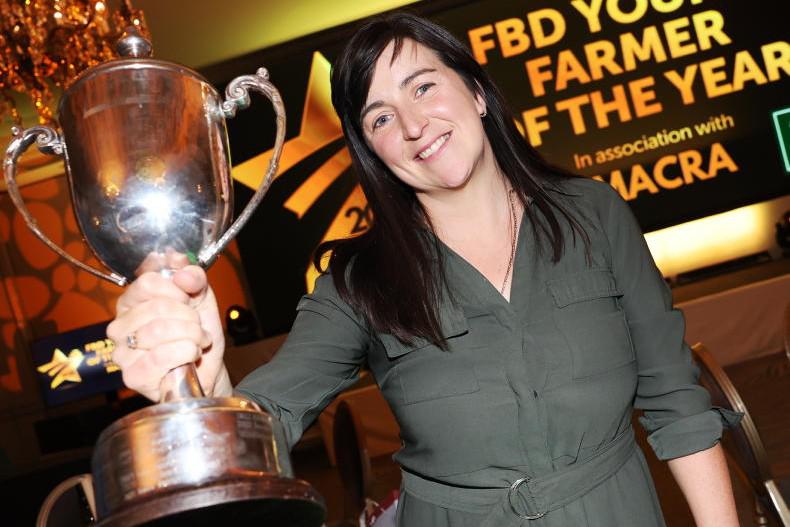While the opening of a new Knowledge Transfer Programme has been widely welcomed, there are concerns being raised over a number of the proposed specifications or requirements coming to light in recent weeks.
These concerns are intensifying with only one week to go to the 11 September deadline for approved facilitators to register proposed beef and dairy discussion groups. Some reports suggest issues raised may not be addressed before the closing date.
Concerns were raised by farmers and industry representatives at this week’s Teagasc Beef Stakeholder Group meeting and at this week’s IFA council meeting. Many attending both meetings said that unless the Department of Agriculture and Teagasc address these concerns, there is a high risk of a repeat of the confusion surrounding the introduction of the Beef Data and Genomics Programme.
The proposals
The programme is similar to the previous Beef Technology Adoption Programme (BTAP) in that an approved facilitator registers the proposed beef, dairy or equine group. Once approved, the facilitator will be asked to submit the names and herd numbers of group members.
Teagasc said it is seeking clarification on group parameters set out as guidelines so far.
Groups will be assessed, with preference given on aspects such as the introduction of new members. There is also a suggestion that groups will be curtailed to between 12 and 18 members, a proposal also meeting stiff opposition from members of established groups who are working effectively with up to 20 to 25 members.
Higher points will also be awarded to groups with facilitators who have greater than Level 8 or equivalent qualification, suggesting all facilitators are not the same.
Another proposed group rule coming under fire is the removal of the allowance for a nominee to attend a group meeting or approved event on behalf of the participant.
Under current proposals, only the herd owner will be deemed eligible to participate in the programme and attend meetings. This removes the flexibility for the regular occurrence at farm level of a son, daughter or farm manager being in control of the farm and nominated to attend the meeting on behalf of their parent(s) or farm owner or the flexibility for a nominee to attend during busy periods.
There was an acceptance that the previous rule could be open to some abuse, with nominees continually selected that are not actively involved in the running of the farm.
However, stakeholder members feel enforcing this rule without finding a way to get young, energetic farmers looking to get experience from their peers involved, while also adding a new lease of life to discussion groups, is too great a loss.
Only one group allowed
There is also a rule that farmers are only allowed to participate in one group – ie farmers with sheep and cattle cannot participate in the new Beef Knowledge Transfer Programme and also participate in a new sheep knowledge transfer group likely to commence in early 2016.
Members feel that there could be some fall-off in sheep groups now or vice versa – farmers could sign up to a beef group now and decide at a later stage that the sheep group is a more attractive fit.
The Department’s defence is that this rule stems from an EU ruling that does not allow farmers to draw down dual funding from the same source.
In reality, resources and the allocation of facilitator time to complete six hours of planning with each client is another reason for inclusion of such a requirement.
Farmer requirements
The programme differs to previous programmes with the selection of tasks now removed and replaced by three proposed actions that all participants have to undertake. Farmers must:
Attend five knowledge exchange group meetings and/or four meetings and one DAFM-approved national event. Complete a farm improvement plan in year one in conjunction with the group’s facilitator, with the plan updated in year two and year three.Draw up animal health measures targeting areas such as calf health and biosecurity with an approved vet who has undergone DAFM training. Teagasc explained the farm improvement plan is likely to include a requirement to complete a profit monitor, breeding plan and grassland plan and/or carbon navigator. It is estimated the plan will be developed over six hours of consultations between the facilitator and the client. This aspect was welcomed by members in the stakeholder group, who feel the development of a three-year plan will give a more targeted focus.
There were calls to set key areas or key performance targets that would need to be addressed when developing the plan that would then also act as a source of discussion in group meetings. The six-hour requirement for drawing up plans will stretch already dwindling Teagasc advisory staff resources, with Teagasc explaining it will need to be given sanction to hire more advisers to deliver an adequate service.
The proposal to make it compulsory for an approved vet to draw up an animal health plan was also met with disapproval from some farmers.
Farmers will receive €750 for each of the three years of the programme. Costs of the facilitator will be covered by the Department, but farmers will be expected to cover the cost of the animal health plan, with initial suggestions this could cost €150 to €200 in year one and €100 to €150 to update in years two and three.
Other farmers acknowledged that herd health planning is essential, but flexibility on who creates the plan should be included. Farmers interested in applying should contact their adviser or facilitator immediately.
Teagasc Beef
Stakeholder Group
The stakeholder group is comprised of a selection of industry representatives and farmers across a range of suckler and beef enterprises. The members meet with Teagasc researchers and advisory specialists to discuss aspects such as current and future research programmes and Teagasc involvement in new programmes, while also delivering feedback on industry challenges and opportunities relevant to Teagasc’s role in the beef industry.
While the opening of a new Knowledge Transfer Programme has been widely welcomed, there are concerns being raised over a number of the proposed specifications or requirements coming to light in recent weeks.
These concerns are intensifying with only one week to go to the 11 September deadline for approved facilitators to register proposed beef and dairy discussion groups. Some reports suggest issues raised may not be addressed before the closing date.
Concerns were raised by farmers and industry representatives at this week’s Teagasc Beef Stakeholder Group meeting and at this week’s IFA council meeting. Many attending both meetings said that unless the Department of Agriculture and Teagasc address these concerns, there is a high risk of a repeat of the confusion surrounding the introduction of the Beef Data and Genomics Programme.
The proposals
The programme is similar to the previous Beef Technology Adoption Programme (BTAP) in that an approved facilitator registers the proposed beef, dairy or equine group. Once approved, the facilitator will be asked to submit the names and herd numbers of group members.
Teagasc said it is seeking clarification on group parameters set out as guidelines so far.
Groups will be assessed, with preference given on aspects such as the introduction of new members. There is also a suggestion that groups will be curtailed to between 12 and 18 members, a proposal also meeting stiff opposition from members of established groups who are working effectively with up to 20 to 25 members.
Higher points will also be awarded to groups with facilitators who have greater than Level 8 or equivalent qualification, suggesting all facilitators are not the same.
Another proposed group rule coming under fire is the removal of the allowance for a nominee to attend a group meeting or approved event on behalf of the participant.
Under current proposals, only the herd owner will be deemed eligible to participate in the programme and attend meetings. This removes the flexibility for the regular occurrence at farm level of a son, daughter or farm manager being in control of the farm and nominated to attend the meeting on behalf of their parent(s) or farm owner or the flexibility for a nominee to attend during busy periods.
There was an acceptance that the previous rule could be open to some abuse, with nominees continually selected that are not actively involved in the running of the farm.
However, stakeholder members feel enforcing this rule without finding a way to get young, energetic farmers looking to get experience from their peers involved, while also adding a new lease of life to discussion groups, is too great a loss.
Only one group allowed
There is also a rule that farmers are only allowed to participate in one group – ie farmers with sheep and cattle cannot participate in the new Beef Knowledge Transfer Programme and also participate in a new sheep knowledge transfer group likely to commence in early 2016.
Members feel that there could be some fall-off in sheep groups now or vice versa – farmers could sign up to a beef group now and decide at a later stage that the sheep group is a more attractive fit.
The Department’s defence is that this rule stems from an EU ruling that does not allow farmers to draw down dual funding from the same source.
In reality, resources and the allocation of facilitator time to complete six hours of planning with each client is another reason for inclusion of such a requirement.
Farmer requirements
The programme differs to previous programmes with the selection of tasks now removed and replaced by three proposed actions that all participants have to undertake. Farmers must:
Attend five knowledge exchange group meetings and/or four meetings and one DAFM-approved national event. Complete a farm improvement plan in year one in conjunction with the group’s facilitator, with the plan updated in year two and year three.Draw up animal health measures targeting areas such as calf health and biosecurity with an approved vet who has undergone DAFM training. Teagasc explained the farm improvement plan is likely to include a requirement to complete a profit monitor, breeding plan and grassland plan and/or carbon navigator. It is estimated the plan will be developed over six hours of consultations between the facilitator and the client. This aspect was welcomed by members in the stakeholder group, who feel the development of a three-year plan will give a more targeted focus.
There were calls to set key areas or key performance targets that would need to be addressed when developing the plan that would then also act as a source of discussion in group meetings. The six-hour requirement for drawing up plans will stretch already dwindling Teagasc advisory staff resources, with Teagasc explaining it will need to be given sanction to hire more advisers to deliver an adequate service.
The proposal to make it compulsory for an approved vet to draw up an animal health plan was also met with disapproval from some farmers.
Farmers will receive €750 for each of the three years of the programme. Costs of the facilitator will be covered by the Department, but farmers will be expected to cover the cost of the animal health plan, with initial suggestions this could cost €150 to €200 in year one and €100 to €150 to update in years two and three.
Other farmers acknowledged that herd health planning is essential, but flexibility on who creates the plan should be included. Farmers interested in applying should contact their adviser or facilitator immediately.
Teagasc Beef
Stakeholder Group
The stakeholder group is comprised of a selection of industry representatives and farmers across a range of suckler and beef enterprises. The members meet with Teagasc researchers and advisory specialists to discuss aspects such as current and future research programmes and Teagasc involvement in new programmes, while also delivering feedback on industry challenges and opportunities relevant to Teagasc’s role in the beef industry.









SHARING OPTIONS